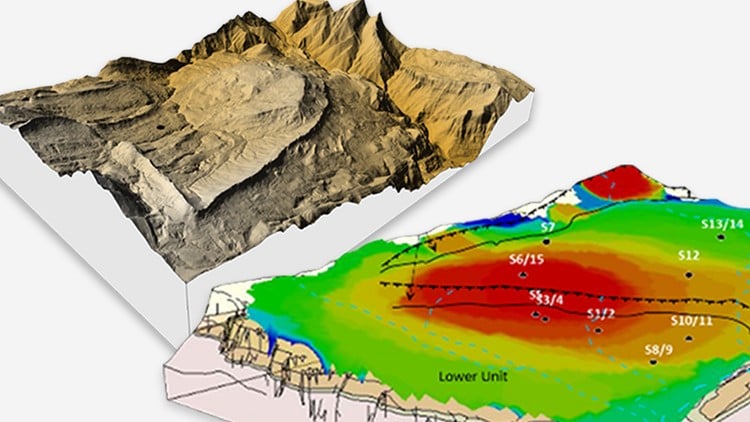
Unlock the Power of Software for Geotecnical Stability Analysis
⏱️ Length: 2.3 total hours
👥 79 students
🔄 September 2025 update
Add-On Information:
Note➛ Make sure your 𝐔𝐝𝐞𝐦𝐲 cart has only this course you're going to enroll it now, Remove all other courses from the 𝐔𝐝𝐞𝐦𝐲 cart before Enrolling!
- Course Overview
- Dive deep into the critical domain of Landslide Stability Analysis, a cornerstone for ensuring safety and resilience in infrastructure development and urban planning.
- This concise course equips geotechnical engineers, civil engineers, geologists, and environmental scientists with the expertise to assess, understand, and mitigate complex slope failure risks.
- Beyond theoretical foundations, you will unlock the practical power of advanced software tools, transforming abstract principles into actionable insights.
- We explore the nuanced interplay of geological conditions, material properties, and external triggers that contribute to instability, emphasizing a data-driven approach.
- The course empowers you to critically interpret results, make informed decisions, and contribute significantly to projects from highway construction to urban development in challenging terrains.
- By mastering methodologies for evaluating existing slopes and proposed designs, participants gain a profound understanding of how to protect lives, safeguard property, and sustain environmental integrity against the pervasive threat of landslides.
- This training is your gateway to becoming a highly competent professional in geotechnical hazard management.
- Requirements / Prerequisites
- Possess a foundational understanding of basic engineering geology, soil mechanics principles, and rock mechanics concepts.
- Familiarity with fundamental civil engineering design principles is highly beneficial.
- While direct experience with specific geotechnical software is not required, general comfort with computer applications and an aptitude for analytical thinking are essential.
- A strong interest in hazard assessment, slope stability, and mitigating geological risks is highly encouraged.
- Access to a personal computer is a prerequisite for hands-on engagement.
- Skills Covered / Tools Used
- Develop proficiency in selecting appropriate constitutive models for various geological materials, crucial for accurate simulation.
- Achieve mastery in preparing and optimizing input data for complex slope geometry and subsurface stratigraphy, ensuring robust analytical setups.
- Gain hands-on experience with industry-standard geotechnical software environments (e.g., those used for 2D/3D limit equilibrium and finite element methods), focusing on their practical application.
- Learn key skills including defining material properties, applying appropriate boundary conditions, and simulating various loading scenarios.
- Perform sensitivity analyses to understand parameter variability’s impact on stability, vital for robust risk assessment.
- Hone your ability to critically interpret graphical and numerical output, translating complex data into clear, actionable engineering conclusions.
- This includes assessing factors of safety, identifying potential failure mechanisms, and enabling confident generation of professional-grade stability reports.
- Benefits / Outcomes
- Upon completion, emerge with enhanced capability to tackle real-world geotechnical challenges related to slope stability.
- Be empowered to confidently assess the stability of natural and engineered slopes, contributing directly to safer, more resilient infrastructure projects.
- Acquire expertise to perform comprehensive risk evaluations for existing slopes, identify potential failure zones, and propose effective mitigation strategies.
- Gain practical knowledge invaluable for contributing to preliminary design phases, detailed engineering studies, and post-construction monitoring.
- Professionally, this specialization will significantly bolster your resume, opening doors to advanced roles in geotechnical consulting, civil engineering firms, government agencies, and research institutions focused on hazard management.
- Be equipped to make data-driven decisions that minimize project risks, optimize construction costs, and protect human lives and the environment from landslides.
- This course lays a solid foundation for continuous professional development in geotechnical engineering.
- PROS
- Highly Practical Application: Directly applicable to real-world engineering projects and hazard mitigation efforts.
- Software-Centric Learning: Emphasizes hands-on proficiency with industry-leading geotechnical analysis software.
- Critical Skill Development: Develops essential analytical and interpretive skills for complex geotechnical problems.
- Career Advancement: Enhances employability and career prospects in a specialized and high-demand field.
- Efficient Learning Format: Delivers core competencies effectively within a concise timeframe.
- Direct Impact: Contributes to public safety, environmental protection, and resilient infrastructure.
- CONS
- Intensive Pacing: The concise duration necessitates focused engagement and active learning to absorb the depth of material covered.
Learning Tracks: English,Teaching & Academics,Teacher Training
Found It Free? Share It Fast!